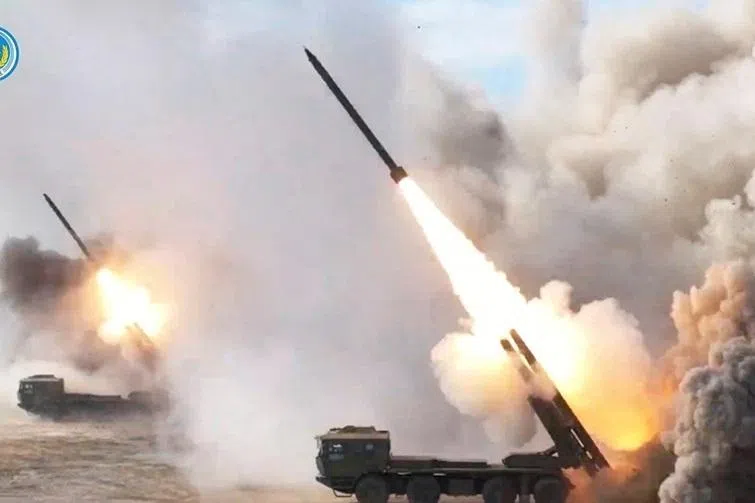Exemplary punishment: How China's using wolf-warrior tactics on Australia to warn the rest
Chinese foreign ministry spokesperson Zhao Lijian's recent tweet of an image depicting an Australian soldier holding a knife to a child's throat has brought China-Australia relations to a new low. While the Australian prime minister has softened his stance and even made goodwill gestures to China, these were rejected by Chinese officials and its people. Edwin Ong traces the deterioration of China-Australia relations and notes that China may not rein in its abrasive wolf-warrior tactics anytime soon. However, he says such tactics may not benefit China in the end.
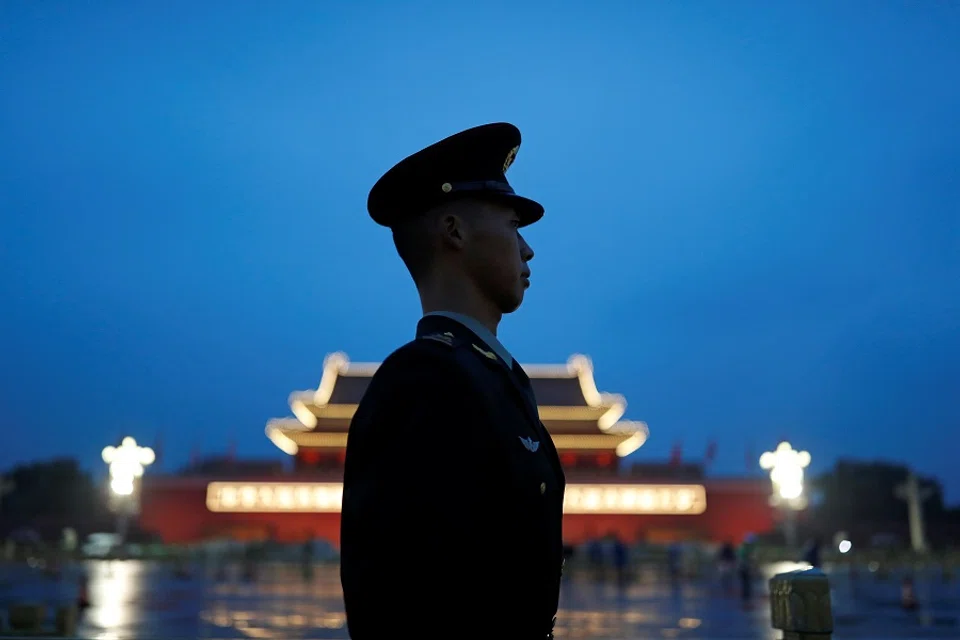
Unexpected as it was, hawkish Australian Prime Minister Scott Morrison made another goodwill gesture to China last week by making some positive remarks about China's economic rise and poverty alleviation efforts. But instead of taking it as an olive branch, China continued to exert pressure on Australia in various ways. Chinese foreign ministry spokesperson Zhao Lijian even tweeted an image depicting an Australian soldier holding a knife to a child's throat, taking already tense China-Australia relations to a new low. China's wolf-warrior diplomacy has once more added an increasingly confrontational tone to its foreign relations.
Australia is a member of the "Five Eyes" alliance. In 2018, it blocked Huawei from providing equipment for its 5G network on the grounds that it could pose a national security threat to the country, marking the start of a strained China-Australia relationship. In April this year, it further offended China by calling for an international probe into the origins of the coronavirus, and was described by Chinese netizens as being "a giant kangaroo that serves as a dog to the US", leading to a downward spiral in China-Australia relations.
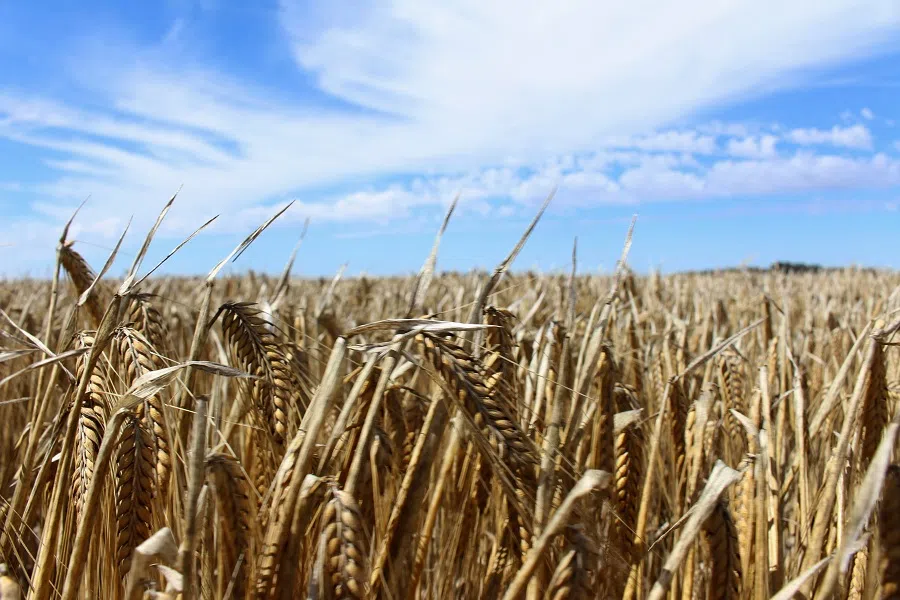
Citing quality and dumping concerns, among other reasons, China restricted the import of beef, barley, and other products from Australia. Ships transporting AU$700 million (S$690 million) worth of coal and some 1,000 crew members have also become the latest targets of sanctions, and have been stranded in Chinese waters for over a month, unable to offload their cargo at China's ports.
In fact, the Chinese government hardened its stance and attempted to teach Australia a lesson and deter other countries from joining the US-led anti-China camp.
Presumably, due to Australia's hard-hit economy and internal assessments of the global situation in a post-Trump era, Morrison tempered his remarks about China in his recent speech. He praised China's economic and poverty alleviation achievements, and said that Australia seeks an "open, transparent and mutually beneficial relationship with China", in what had been described as offering an olive branch to China.
But Chinese officials and members of the public rejected this gesture. In fact, the Chinese government hardened its stance and attempted to teach Australia a lesson and deter other countries from joining the US-led anti-China camp. On 25 November, China confirmed its purchase of nearly US$1.5 billion (S$2 billion) worth of coal from Indonesia, further reducing its reliance on Australian coal. On 27 November, the Chinese Ministry of Commerce announced that with effect from 28 November, China will impose temporary anti-dumping tariffs of up to 212% on Australian wine, effectively shutting off Australia's largest export market for Australian wine.
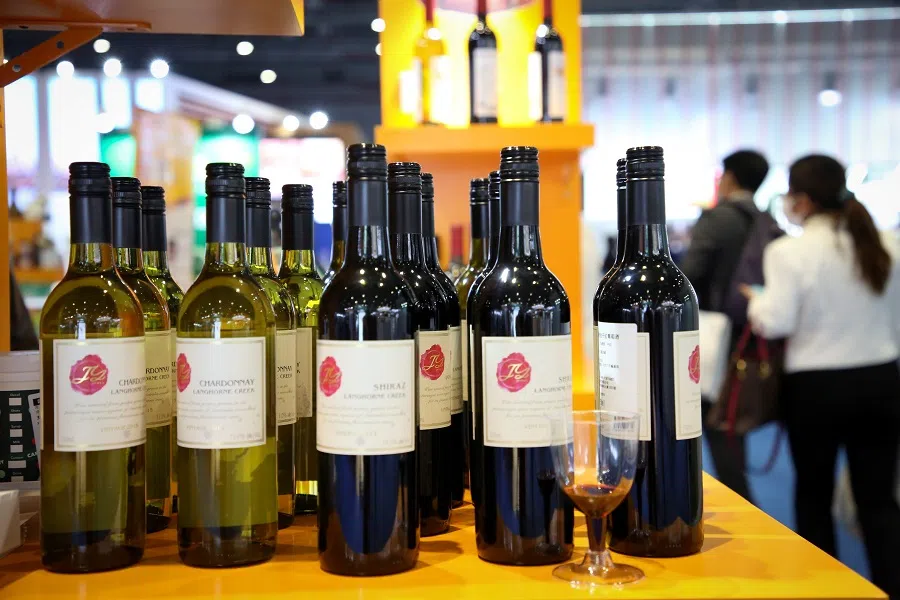
Diplomacy set aside in favour of crass tactics?
China's retaliatory actions on Australia extend beyond the realms of economy and trade. Seen as a representative figure of Beijing's wolf-warrior diplomacy, Zhao on Monday tweeted: "Shocked by murder of Afghan civilians & prisoners by Australian soldiers. We strongly condemn such acts, & call for holding them accountable." But it was the accompanying image that caused a furore: an Australian soldier is seen holding a knife to an Afghan child's throat with the caption "Don't be afraid, we are coming to bring you peace!". The image was later reported to have been produced by Chinese graphic artist Wuheqilin (乌合麒麟).
Morrison immediately criticised the image as being fake and "repugnant", and demanded an apology from the Chinese side. In response, not only did Zhao refuse to delete the image as per Australia's request, he even pinned it to the top of his Twitter account, as if he was spoiling for a fight. In March this year, Zhao was also in a war of words with the US for tweeting an unverified conspiracy theory that the US army could be the one who brought the coronavirus to Wuhan, further intensifying an already tense China-US rivalry.
A Bloomberg article analysed that China is probably wagering that most Western countries will not risk provoking Beijing and suffering the same trade retaliations that have been inflicted on Australia, particularly when their economies are affected by the pandemic. At the same time, China is also hoping to strengthen ties with Japan, South Korea, and various Southeast Asian countries by offering more trade and access to Covid-19 vaccines.
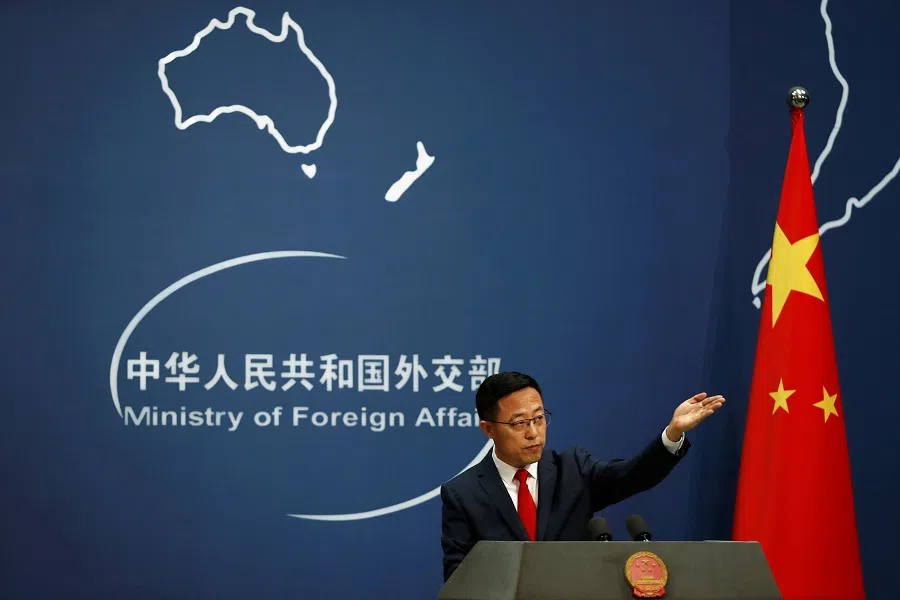
Amid ongoing controversy over the image, Hua Chunying, Zhao's superior, repeatedly emphasised during the foreign ministry's regular press conference that people were "reading too much into it" to think that "China's condemnation on some Australian troops' murder of Afghan civilians is linked to China-Australia relations". At the same time, she defended Zhao's actions, saying that Zhao had tweeted an image and not a fake photo. Moreover, the content of the image is based on the deeds confirmed by the Australian Department of Defence in an inquiry report and that "this is a fact".
Wolf-warrior diplomacy could alienate China
Zhao is entitled to express his views on Twitter, but he did not directly quote the investigation report from the Australian Department of Defence. Instead, he resorted to mocking another country with an image - that was undignified.
One result of the incident is to put other countries on their guard against China, weakening China's diplomatic policy of "amity, sincerity, mutual benefit and inclusiveness" towards its neighbours, while making an alliance between Biden and other Western countries more attractive.
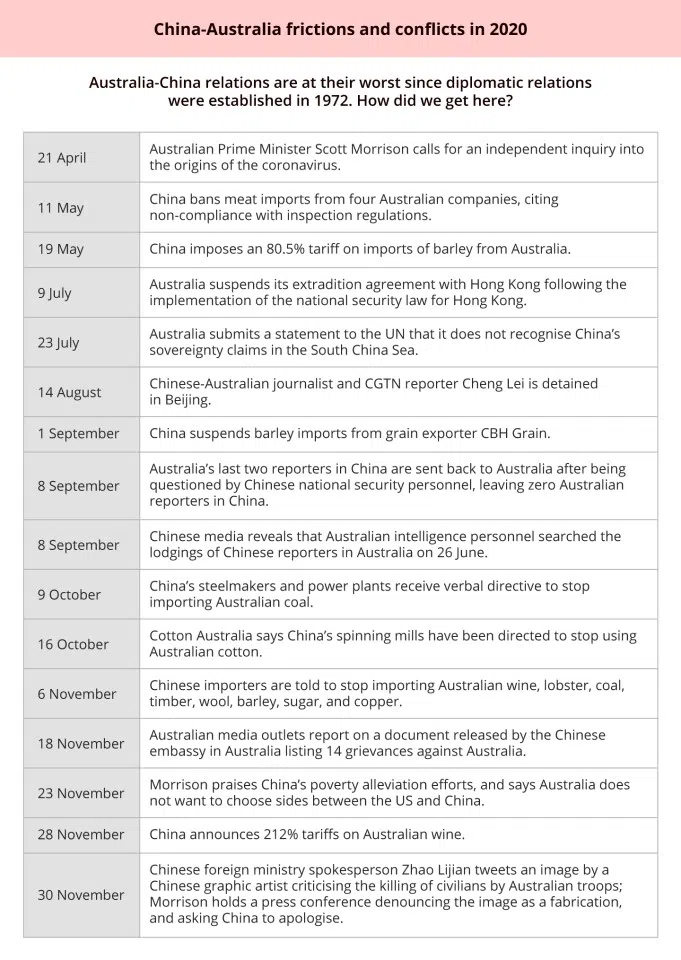
On 1 December, Morrison softened his stand some more, saying that Australia is working to maintain its working relationship with China, and the incident "doesn't need any further amplification". This soft stand makes Morrison seem like the disadvantaged victim.
Now, the incident is prompting the West to unite in taking a tough stand against China. This week, New Zealand and France issued statements in support of Australia, while the US also spoke up for Australia on 2 December, with US State Department deputy spokesperson Cale Brown criticising China for "spreading disinformation by fabricating an image of Australian soldiers in Afghanistan. This is a new low, even for the Chinese Communist Party."
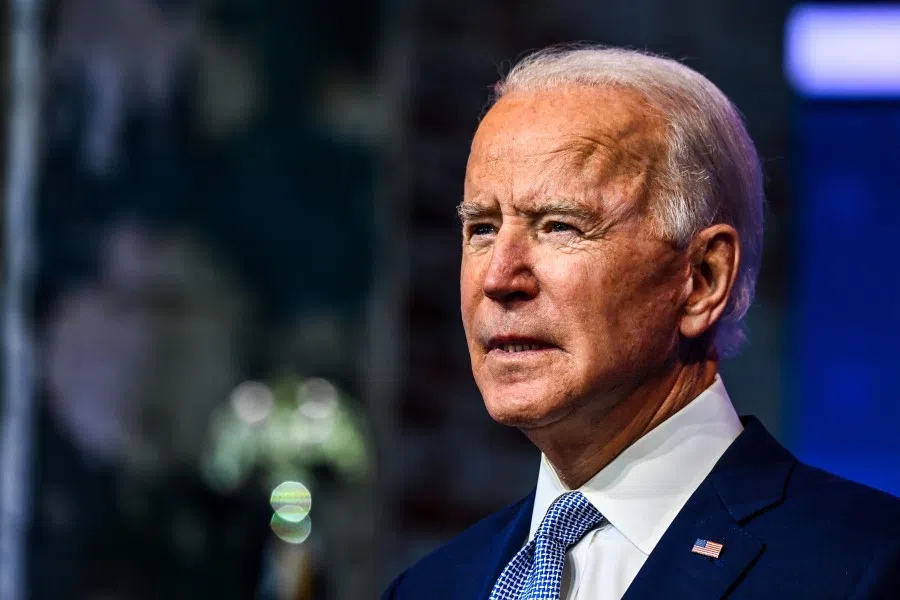
That same day, US President-elect Joe Biden also revealed more about his policy towards China. In an interview with the New York Times, he said the best strategy for the US is to get back on the same page with its allies, conduct a full review of the phase one trade deal and consult with the US's traditional allies in Asia and Europe, and "develop a coherent strategy".
While currently only a few countries are jumping into the uproar over the image, other countries are clearly also taking it seriously. One result of the incident is to put other countries on their guard against China, weakening China's diplomatic policy of "amity, sincerity, mutual benefit and inclusiveness" towards its neighbours, while making an alliance between Biden and other Western countries more attractive.
Will wolf-warrior diplomacy extend to 2021 and become the main mode of China's diplomacy? If the economic recovery of other countries is too dependent on China, and if Biden's leadership falls short, it may become the norm for China to teach unfriendly countries a lesson with wolf-warrior tactics.



![[Big read] When the Arctic opens, what happens to Singapore?](https://cassette.sphdigital.com.sg/image/thinkchina/da65edebca34645c711c55e83e9877109b3c53847ebb1305573974651df1d13a)
